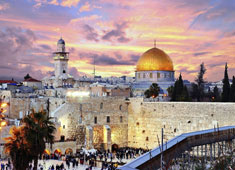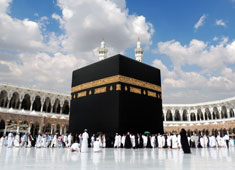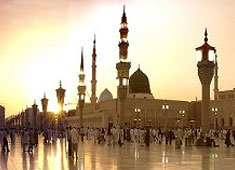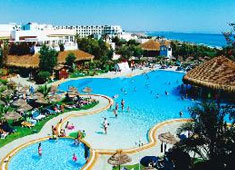The educational purposes of Hajj
| Islam came to teach people the true human values and moralities by following the prescriptions of the Holy Quran and the Sunnah. Hajj like all any other Islamic practice is full of symbolic acts and codes. The Muslim sacrifices his/her time, health and wealth in order to gain the satisfaction of the Almighty. Thus, this endurance and sacrifices have got a crucial impact in educating the self to be patient during hardships .Hajj also teaches the Muslim not to be skimpy as he/she will spend his/her money for the sake of the Almighty. |  |
It contributes to the familiarization of the self to be committed and respectful to time. No more waste of time as the pilgrim is limited and restricted to specific times during the performance of the rites. Equally, The Muslim has to take profit from the opportunity while he/she is in the holiest sites of the earth to establish friendship and for God’s sake relationships. The pilgrim has to try to examine and improve and even propose solutions for the Muslims dilemmas.
The educational purposes of the Hajj are clearly embodied in the unique Quranic guidance to avoid the debates: “So whosoever intends to perform Hajj therein (by assuming Ihram), then he should not have sexual relations (with his wife), nor commit sin, nor dispute unjustly during the Hajj. (Surah Al-Baqara 197)
Islam wants Muslims to give up their bad habits via worship practices. Hajj as a pillar among the five pillars of Islam teaches Muslims to be highly respectful. Rites are performed communally and pilgrims share their rooms with those they have never met before! This is the real solidarity between Muslims worldwide and particularly during Hajj.
Hajj represents a good opportunity to get used to constantly worship the Almighty by training oneself to pray, supplicate and remember Allah. It unites all the Muslims and strengthens them. It let them feel the greatness of their religion.
Click Here to read the Hajj and Umrah latest news













 TUNIS
TUNIS Casablanca
Casablanca




 France
France Morocco
Morocco Saudi Arabia
Saudi Arabia Tunisia
Tunisia